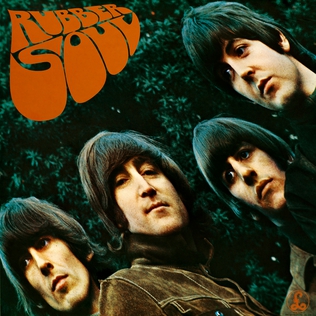
Rubber Soul is the sixth studio album by the English rock band the Beatles. It was released on 3 December 1965 in the United Kingdom, on EMI's Parlophone label, accompanied by the non-album double A-side single "Day Tripper" / "We Can Work It Out". The original North American release, issued by Capitol Records, contains ten of the fourteen songs and two tracks withheld from the band's Help! album. Rubber Soul met with a highly favourable critical response and topped sales charts in Britain and the United States for several weeks.

"Norwegian Wood " is a song by the English rock band the Beatles from their 1965 album Rubber Soul. It was written mainly by John Lennon and credited to the Lennon–McCartney songwriting partnership. Influenced by the introspective lyrics of Bob Dylan, the song is considered a milestone in the Beatles' development as songwriters. The track features a sitar part, played by lead guitarist George Harrison, that marked the first appearance of the Indian string instrument on a Western rock recording. The song was a number 1 hit in Australia when released on a single there in 1966, coupled with "Nowhere Man".
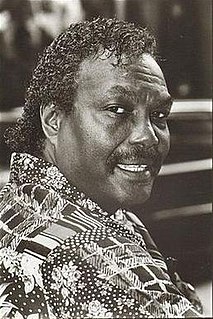
Arthur Alexander was an American country soul songwriter and singer. Jason Ankeny, music critic for AllMusic, said Alexander was a "country-soul pioneer" and that, though largely unknown, "his music is the stuff of genius, a poignant and deeply intimate body of work on par with the best of his contemporaries." Alexander's songs were covered by such stars as the Beatles, the Rolling Stones, Bob Dylan, Gerry and the Pacemakers, Otis Redding, Tina Turner, Pearl Jam, and Jerry Lee Lewis.
Beat music, British beat, or Merseybeat is a popular music genre, influenced by rock and roll, skiffle, and traditional pop music, that developed in the United Kingdom in the early 1960s.

"You Won't See Me" is a song by the English rock band the Beatles from their 1965 album Rubber Soul. It was written by Paul McCartney and credited to Lennon–McCartney. As with songs such as "We Can Work It Out" and "I'm Looking Through You" from the same period, the lyrics address McCartney's troubled relationship with Jane Asher and her desire to pursue her career as a stage and film actress. The Beatles recorded the song during what author Mark Lewisohn describes as a "marathon" final recording session for Rubber Soul, to ensure the album's pre-Christmas release.
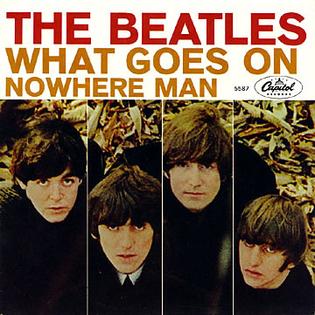
"What Goes On" is a song by the English rock band the Beatles, featured as the eighth track on their 1965 album Rubber Soul. The song was later released as the B-side of the US single "Nowhere Man", and then as the tenth track on the North America-only album Yesterday and Today. It is the only song by the band credited to Lennon–McCartney–Starkey and the only song on Rubber Soul that features Ringo Starr on lead vocals. The song reached number 81 on the US Billboard Hot 100 in 1966.

"Wait" is a song by the English rock band the Beatles from their 1965 album Rubber Soul. The song is credited to the Lennon–McCartney partnership. In the 1997 book Many Years from Now, Paul McCartney recalls it as entirely his work. In a 1970 interview with Ray Connolly, John Lennon could not remember writing it, saying, "That must be one of Paul's."
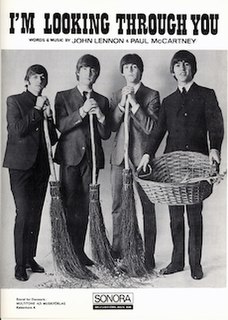
"I'm Looking Through You" is a song by the English rock band the Beatles from their 1965 album Rubber Soul. It was written by Paul McCartney and credited to Lennon–McCartney. McCartney wrote the song about English actress Jane Asher, his girlfriend for much of the 1960s, and her refusal to give up her stage career and focus on his needs. The line "You don't look different, but you have changed" reflects his dissatisfaction with their relationship. The lyrics also refer to his changing emotional state: "Love has a nasty habit of disappearing overnight".
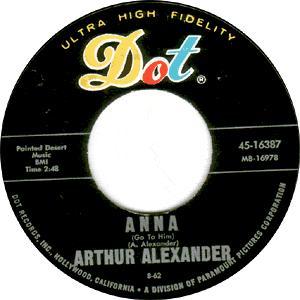
"Anna ", or simply "Anna", is a song written and originally recorded by Arthur Alexander. His version was released as a single by Dot Records on September 17, 1962. A cover version was performed by the Beatles and included on their 1963 debut album Please Please Me. A Spanish cover version was performed by Groupo Pegasso and included on their 1996 album Amor Vendido, Vol. 4 , followed by an English Version in 2019.
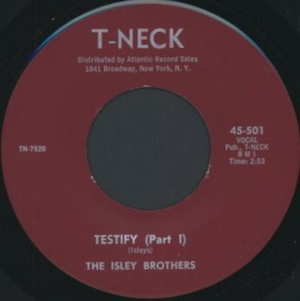
"Testify" is an uptempo soul song by the American rhythm and blues group the Isley Brothers. Written by the Isleys and recorded in 1964, it followed several successful singles by the group and was the first single to appear on their own T-Neck record label.
"Detroit City" is a song written by Danny Dill and Mel Tillis, made famous by Billy Grammer, country music singer Bobby Bare and Tom Jones. Bare's version was released in 1963. The song — sometimes known as "I Wanna Go Home" — was Bare's first Top 10 hit on the Billboard Hot Country Singles chart that summer, and became a country music standard.

Beat & Soul is an album by The Everly Brothers, originally released in 1965. It peaked at No. 141 on the Billboard Pop Albums charts. It was re-released on CD in 2005 on the Collectors' Choice Music label.

"Soldier of Love ," also known as "Soldiers of Love," is a 1962 song written by Buzz Cason and Tony Moon It was originally recorded by soul artist Arthur Alexander and released as a B-side of the single "Where Have You Been ", which reached #58 in the Billboard Hot 100 in June 1962. The song was later covered by The Beatles during a 1963 session at the BBC, released on the 1994 album Live at the BBC. It was also covered by The Kaisers, Marshall Crenshaw, Pearl Jam, Little Steven, and The Derailers.
British rhythm and blues was a musical movement that developed in the United Kingdom between the late 1950s and the early 1960s, and reached a peak in the mid-1960s. It overlapped with, but was distinct from, the broader British beat and more purist British blues scenes, attempting to emulate the music of American blues and rock and roll pioneers, such as Muddy Waters and Howlin' Wolf, Chuck Berry and Bo Diddley. It often placed greater emphasis on guitars and was often played with greater energy.
"Milk Cow Blues" is a blues song written and originally recorded by Kokomo Arnold in September 1934. In 1935 and 1936, he recorded four sequels designated "Milk Cow Blues No. 2" through No. 5. The song made Arnold a star, and was widely adapted by artists in the blues, Western swing and rock idioms.

"Go Home Girl" is a song written by Arthur Alexander. It was originally released in 1962 as Alexander's follow-up single to "Anna." It has since been recorded by the Rolling Stones, Ry Cooder, Gary U.S. Bonds and Frank Black.

"Where Have You Been " is a song written by Barry Mann and Cynthia Weil.
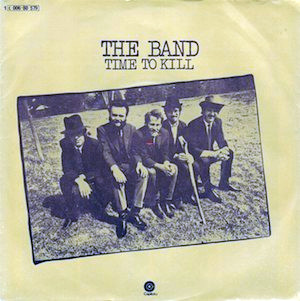
"Time to Kill" is a song written by Robbie Robertson that was first released by the Band on their 1970 album Stage Fright. It was also released as a single off the album, backed with the more famous "The Shape I'm In" and, although it failed to reach the Top 40 in the United States, it peaked at #13 in the Netherlands. It has also been featured on several Band compilation and live albums.
"The Unfaithful Servant" or "Unfaithful Servant" is a song written by Robbie Robertson that was first released by The Band on their 1969 album The Band. It was also released as the B-side of the group's "Rag Mama Rag" single. It has also appeared on several of the Band's live and compilation albums.

"Beef Jerky" is an instrumental written by John Lennon that was released on his 1974 album Walls and Bridges and also as the b-side of the lead single from that album, the #1 hit "Whatever Gets You Through the Night."















